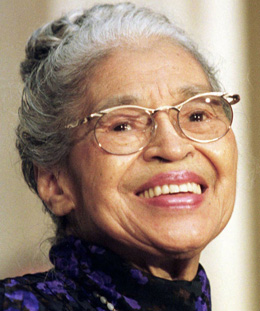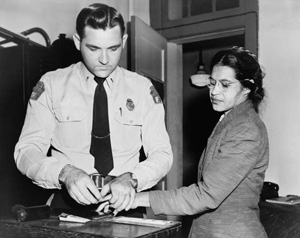“The time had just come when I had been pushed as far as I could stand to be pushed, I suppose. I had decided that I would have to know, once and for all, what rights I had as a human being and a citizen.” — Rosa Parks
Parks’ refusal to relinquish seat helped bus boycott, Civil Rights movement
On Dec. 1, over 68 years ago, Rosa Parks made history when she refused to give up her bus seat to a white man.
She took a seat near the middle of the bus. As segregation laws required, Parks was expected to give up her seat to the white people who boarded the bus at the next stop. When the driver told Parks to move, she refused. Consequently, she was arrested and convicted. She had broken the laws of segregation and had to pay a $10 fine and $4 in court costs. A former president of the Montgomery NAACP chapter, E.D. Nixon, asked her for permission to use her case to fight segregation. She said yes.
Most people feel that Parks helped spark the Civil Rights movement through this act. Two other Black women had refused to relinquish their seats on buses before. However, people believed that Parks’ quiet strength and impeccable character would help gain support for the movement.
Public transportation boycott
Her action soon led to a boycott of the bus system. This caused financial difficulty for the city and led the U.S. Supreme Court to stop racial segregation in Alabama’s public transportation system. Additionally, Parks’ refusal to give up her seat brought about more protests which helped bring Baptist minister Martin Luther King, Jr. to the forefront of the Civil Rights movement.
Accounts from this incident confirm that Parks knew the bus driver. He had once forced her to leave the bus and reboard through the rear door. Before she could board through the back door, the driver took off. She was not the only African American the driver had humiliated. She also knew that the driver carried a gun.
In her autobiography, she wrote, “As I sat there, I tried not to think about what might happen. I knew that anything was possible. I could be manhandled or beaten. I could be arrested.”
But Parks was courageous and determined which helped her refuse to accept the laws of segregation that day. That action helped make her an important catalyst for the Civil Rights movement.


